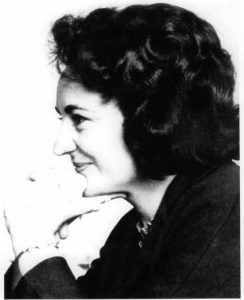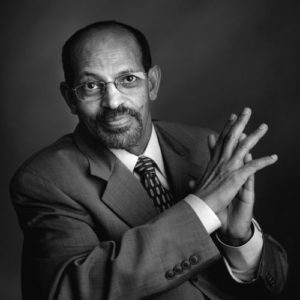by Martin Plaut, Senior Research Fellow
 Ruth First (4 May 1925 – 17 August 1982) is today recognised as one of South Africa’s revolutionary heroes.
Ruth First (4 May 1925 – 17 August 1982) is today recognised as one of South Africa’s revolutionary heroes.
She was a radical journalist, educator and member of the Communist Party. Her papers are held by the Institute of Commonwealth Studies.
As a result of her work, the apartheid government banned her. Then, in 1963, she was imprisoned and held in isolation without charge for 117 days.
Ruth went into exile in 1964, joining the Anti-Apartheid Movement. She lectured in London and then in Maputo, Mozambique. She was assassinated there on 17 August 1982, blown up by a bomb sent by the South African state.
Ruth First was married to Joe Slovo, also a Communist, who led the African National Congress’s military wing, Umkhonto we Sizwe.
They lived together in the London borough of Camden (13 Lyme Street). A memorial to the couple was opened by Nelson Mandela in 2003.
It was during their time in London that an Eritrean activist, Paulos Tesfagiorgis, met them at their home.
Ruth First and Eritrea
The stand that Ruth First took on Eritrea was very different to that of the rest of the ANC or the South African Communist Party.
She recognised the Eritreans as a legitimate liberation movement, even when they were fighting the Marxist government in Ethiopia, which was supported by the Soviet Union.
This set her apart from the position of the Communist Party, a point recognised by Professor Gavin Williams in his commemoration of her work.
“I note her estrangement from the international policies of the South African Communist Party (SACP) after the Soviet invasion of Czechoslovakia in 1968 and her critical view of the Soviet model,2 and her public support for the Eritrean People’s Liberation Front against the military government of the Derg in Ethiopia…”
Ruth was also prepared to make her views public, participating in a hearing at the Permanent People’s Tribunal in Italy. She backed the Tribunal’s finding that:
“5. The Eritrean people have the inalienable right of self-determination.
6. The ancient historical links between Eritrea and Ethiopia (claimed by the Ethiopian government) are not documented in an appropriate manner, and would not be of such a nature as to constitute an obstacle to recognition and exercise of the right to self-determination.
7. This right of self-determination must be exercised respecting the territorial integrity of Eritrea, pursuant to articles 2 and 3 of the Organization Charter for African Unity and respecting intangibility the frontiers inherited from colonialism, according to the principles established by the Resolution of the OAU of 21 July 1964.”
Ruth’s stand caused tension between her and her party; but also inside her family.
This had been recalled by the Eritrean activist Paulos Tesfagiorgis. Paulos, a member of the Eritrean People’s Liberation Front, went on to lead the Eritrea Relief Association, which channelled millions of dollars worth of aid into rebel held areas of Eritrea during the famine of 1984-85. It was in this capacity that he met Ruth and Joe.
Ruth First by Paulos Tesfagiorgis
It is difficult to recollect in great detail what transpired in a social setting about 40 years ago. This is therefore only an impression; an occasion that impressed itself on my mind and which I can recall to this day. But it was a recollection of events that took place four decades ago.
It took place in mid to late summer of 1976 at the London residence of Joe Slovo and Ruth First. We [Dr. Bereket Habteselassie and I] were to London to be introduced to the humanitarian community and humanitarian organisations in the UK. I had assumed the Chairmanship of the Eritrean Relief Association a few weeks ago, and Dr. Bereket was taking me around to meet people he knew as part of a handover.
We were graciously received by our hosts, Joe and Ruth. Inevitably, we started discussing the Eritrean struggle and, in that context, the involvement of the then Soviet Union on the side of the Derg. Ruth started to ask why the Soviets were supporting such an oppressive regime against an African liberation movement… She was clearly upset. Joe tried to answer, unconvincingly, but ultimately could only keep repeating: “the Soviets must have their own reasons”.
This did not go down well with Ruth at all. She insisted on getting an answer to the question. When this was not forthcoming she got agitated and then began to show her disdain and displeasure with the answer he was providing. But Joe, as a loyal party member, could only repeat the same time and again.


Recent Comments